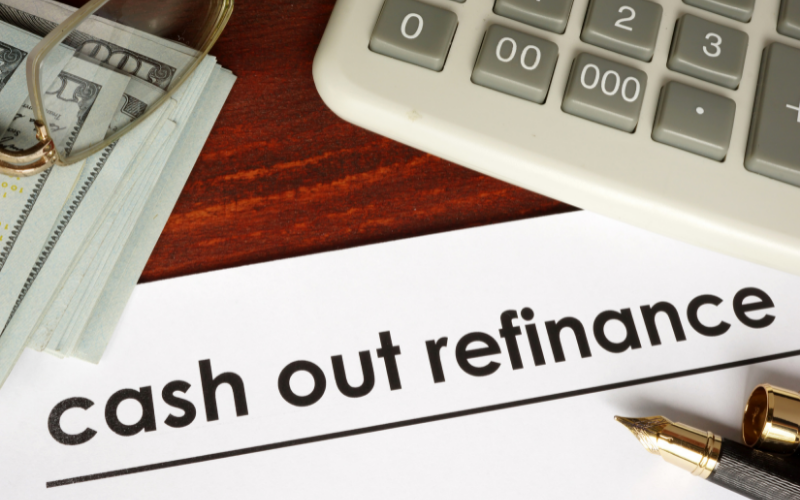Refinancing: Check Your Financials First
 Although interest rates continue to rise, they are still low and you have probably heard that refinancing could help you save money on your home loan. Even though you are probably focused on current mortgage interest rates, feverishly comparing them to your own interest rate, you need to check your financials first. What are a few important indicators of your financial health that you need to check before you go through the refinancing process?
Although interest rates continue to rise, they are still low and you have probably heard that refinancing could help you save money on your home loan. Even though you are probably focused on current mortgage interest rates, feverishly comparing them to your own interest rate, you need to check your financials first. What are a few important indicators of your financial health that you need to check before you go through the refinancing process?
Check Your Credit Report
During the refinancing process, you will essentially replace your current home loan with another one. Therefore, the lender is going to check your credit report, so you should do so before your lender does. You can request one free copy of your credit report from each of the major credit bureaus every year. Be sure to check your credit report for any mistakes. Correct them before you go through the refinancing process, and maximize your credit score.
Look At Your Most Recent Mortgage Statement
Next, you should also check your most recent mortgage statement. You need to understand your current interest rate, your unpaid principal, and the maturity date of your loan. This will help you figure out if it is worth it for you to go through the refinancing process. You can figure out what interest rate you need to have on the new loan to make it worth it.
Pay Down Other Debt
During the refinancing process, you need to avoid applying for other lines of credit. This includes credit cards. You may also want to pay down other sources of debt to improve your debt to income ratio. This can help you get the best possible terms on your new home loan.
Check Your Home’s Value
Your lender will order an appraisal to check your home’s value. Ideally, it has gone up in value, which will make it easier for you to qualify for a new home loan. There are free tools you can use online to get a quick estimate of your home’s value.
Consider Refinancing Your Home Loan
If you want to save money on your mortgage, it might be worth it to go through the refinancing process. You should reach out to a professional who can help you evaluate your opportunities and make the best possible decision.

 As interest rates fluctuate, you might think about refinancing your mortgage. This is the cost of taking out a new home loan to replace the one you currently have. If you get a significantly lower interest rate, you could save tens of thousands of dollars over the life of the mortgage. On the other hand, you need to think about potential expenses you might incur during the refinancing process. Because you are taking out another home loan, you may need to pay closing costs a second time. What are some of the most common expenses you might have to pay?
As interest rates fluctuate, you might think about refinancing your mortgage. This is the cost of taking out a new home loan to replace the one you currently have. If you get a significantly lower interest rate, you could save tens of thousands of dollars over the life of the mortgage. On the other hand, you need to think about potential expenses you might incur during the refinancing process. Because you are taking out another home loan, you may need to pay closing costs a second time. What are some of the most common expenses you might have to pay? If you decide to go through the refinancing process, there are several options available. One of the most popular options is a cash-out refinance. Essentially, you capitalize on the difference between current interest rates and the interest rate on your home loan to keep your payments the same while also drawing equity out of your home in the form of cash. You can use this money to fund your retirement, complete home repairs, or do a renovation project. Even though you can do just about anything you want with this cash, what do you need to know about a cash-out refinance and taxes?
If you decide to go through the refinancing process, there are several options available. One of the most popular options is a cash-out refinance. Essentially, you capitalize on the difference between current interest rates and the interest rate on your home loan to keep your payments the same while also drawing equity out of your home in the form of cash. You can use this money to fund your retirement, complete home repairs, or do a renovation project. Even though you can do just about anything you want with this cash, what do you need to know about a cash-out refinance and taxes? If you want to save money on your mortgage, now might be a great time to refinance. When you refinance your home loan, you replace the existing mortgage with a different one. You can refinance your home to withdraw cash, shorten the term of the loan, or reduce your interest rate. Not everyone can refinance the house, so take a look at a few key rules you need to follow to qualify for a refinance.
If you want to save money on your mortgage, now might be a great time to refinance. When you refinance your home loan, you replace the existing mortgage with a different one. You can refinance your home to withdraw cash, shorten the term of the loan, or reduce your interest rate. Not everyone can refinance the house, so take a look at a few key rules you need to follow to qualify for a refinance. If you want to save money on your home loan, you might be thinking about refinancing your mortgage. You might be able to replace your existing mortgage with a home loan that has a lower interest rate. Even a single point reduction in your interest rates could save you tens of thousands of dollars over the life of your loan. Before you refinance, be sure to ask about closing costs. Because you are replacing your existing home loan with a new one, you may incur some closing expenses. On the other hand, you could also have negative closing costs. In this case, you might get paid to refinance. How does this work?
If you want to save money on your home loan, you might be thinking about refinancing your mortgage. You might be able to replace your existing mortgage with a home loan that has a lower interest rate. Even a single point reduction in your interest rates could save you tens of thousands of dollars over the life of your loan. Before you refinance, be sure to ask about closing costs. Because you are replacing your existing home loan with a new one, you may incur some closing expenses. On the other hand, you could also have negative closing costs. In this case, you might get paid to refinance. How does this work?